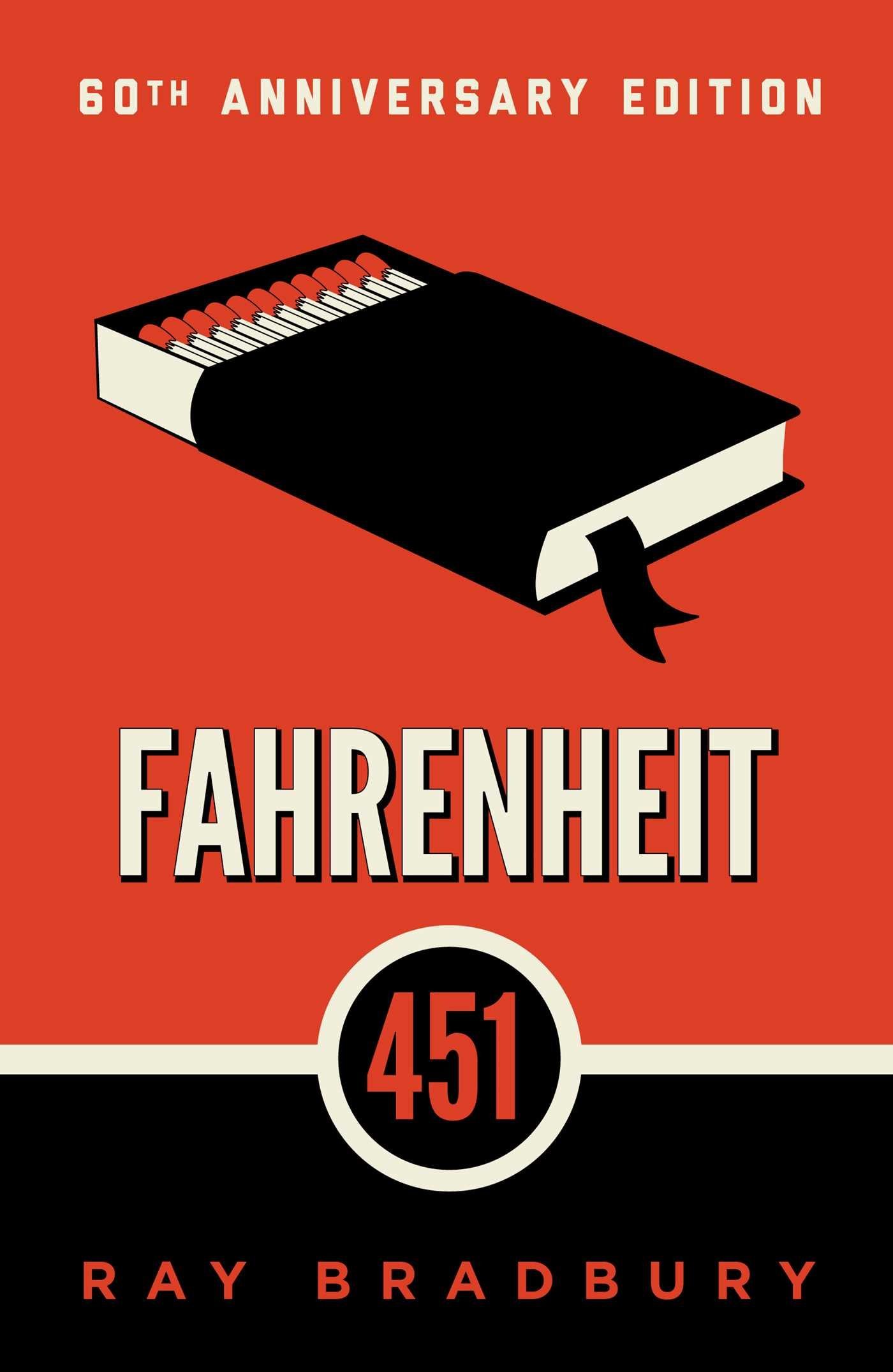Fahrenheit 451
“There must be something in books, something we can’t imagine, to make a woman stay in a burning house; there must be something there. You don’t stay for nothing.”
Books have become illegal; thus, owning them is a form of disobedience against the state and a violation of the law. The books are burnt by a special group of firefighters which hunt readers mercilessly. When they find them, they burn their beloved collection and leave them to die. One woman burns with her books by her own choosing rather than submit to ignorance. The firefighters don’t know exactly why they do it, they rarely question it, they just do it unflinchingly because that is what they are told to do. And they cannot understand why somebody would fight to the death to defend the written word.
Guy Montag is one such firefighter. He lives a mundane life with an equally mundane partner. He’s miserable. He carries out the book burnings, like the others, without a second thought until one day an innocent young girl changes his life forever. She is his next-door neighbour and she is a closet book reader; she asks him a series of questions that makes him realise how stupid and worthless his existence is. He takes solace in a collection of books he has stolen whilst on the job, a symbol that he and the world could one day be free. The knowledge he gains changes his perception of the world forever.
Books have fallen out of favour as other mediums have taken priority over them. People have become hostile to books because they feel inferior when faced with an educated reader; thus, if they are removed forever everyone will be the same and minorities will be removed. Individuality would die. Consequently, when Guy begins reading, he does not know what to do anymore; he has been conditioned to act in a certain way, and when liberty presents itself, he is reluctant and confused by his new knowledge. He is a reluctant hero but a hero, nonetheless. He has stolen one of the last surviving copies of the Bible but doesn’t know what it is. However, a professor of the bygone age does and what comes after is one of the most powerful and symbolic endings I’ve ever read in science-fiction.
I think the reason that books are so important to our lives and to the health of our society -- of any society -- is not because they give us answers, but because they make us ask the questions. Books -- good books, the books that stay with you for years after you read them, the books that change your view of the world or your way of thinking -- aren't easy. They aren't facile. They aren't about surface; they're about depth. They are, quite literally, thought-provoking. They require complexity of thought. They require effort on the part of the reader. You get out of a book what you put into the reading of it, and therefore books satisfy in a way that other types of entertainment do not.
And they aren't mass-produced. They are individual, unique, gloriously singular. They are each an island, much-needed refuges from an increasingly homogeneous culture. I'm glad I read Fahrenheit 451, even if the ending was rather bleak. It challenged me and made me think, stimulated me intellectually. We could all do with a bit of intellectual stimulation now and then; it makes life much more fulfilling.
